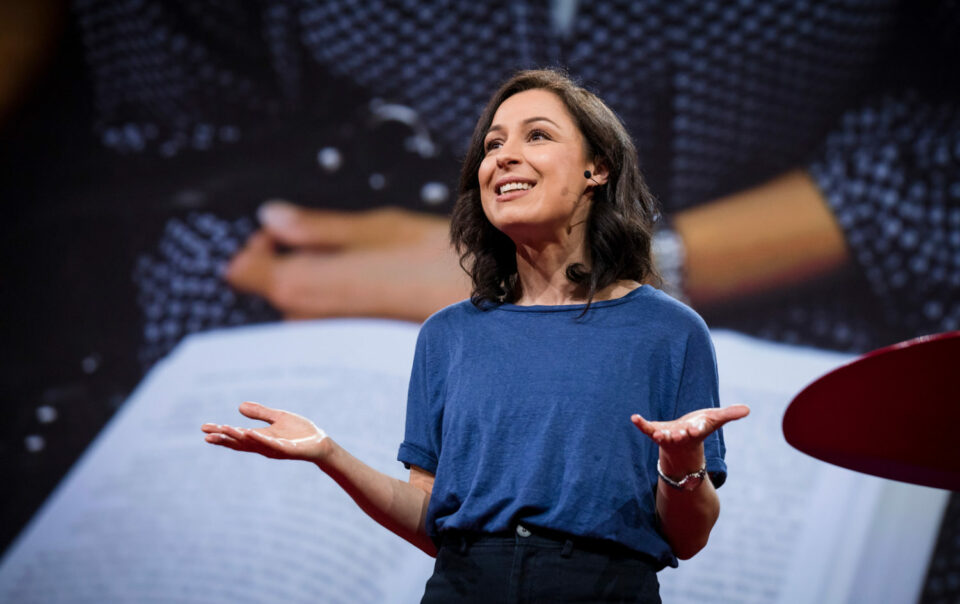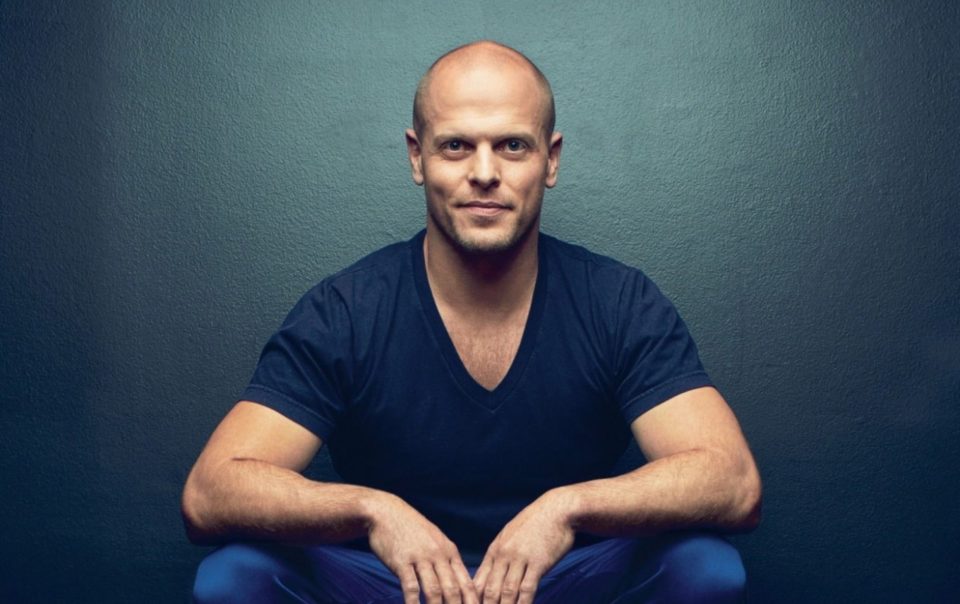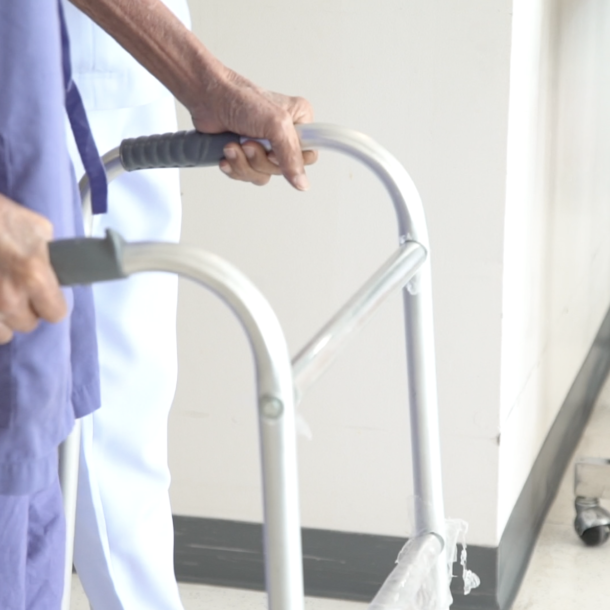
Redefine Your Limits หรือ การใช้ชีวิตในแบบที่ไม่มีขีดจำกัด หรือ ไม่ตั้งข้อแม้ให้กับตัวเองจะทำให้เรามีโอกาสที่จะสร้างการเปลี่ยนแปลงในชีวิตและประสบความสำเร็จได้มากขึ้น
ทุกคนต้องเคยได้ยินสโลแกนเครื่องดื่มชูกำลังยี่ห้อหนึ่งมาตั้งแต่เด็กกันอยู่แล้วว่า “ไม่มีลิมิตชีวิตเกินร้อย” หรือ ที่เด็กในสมัยนี้เอามาเปลี่ยนใหม่เป็น “ไม่มีลิมิต ชีวิตนอนน้อย” กลายเป็นเรื่องขำขันไป ซึ่งคำพูดหรือวลีที่นิยมในแต่ละยุคแต่ละสมัยมักจะเปลี่ยนไปตามเหตุการณ์ หรือ สถานการณ์ต่างๆ หรือ เรื่องราวของบุคคลสำคัญ ที่เกิดขึ้น
เรื่องของขีดจำกัด หรือ ข้อจำกัด เป็นเรื่องที่ทำให้มนุษย์ประสบความสำเร็จไม่เท่ากัน
เมื่อพูดถึงเรื่องขีดจำกัด ตัวอย่างเช่น วันนี้เราอาจจะกำหนดว่าเราจะอ่านหนังสืออยู่ที่สองชั่วโมง พรุ่งนี้อาจจะเป็นสามชั่วโมง หรืออาทิตย์หน้าอาจจะเป็นห้าชั่วโมง หากมองในเรื่องของขีดจำกัดกันจริงๆแล้ว เรื่องของขีดจำกัดมันก็คล้ายกๆ กับการตั้งเป้าหมายของเราเหมือนกัน ซึ่งเป็นการกำหนดจุดหมายปลายทางขึ้นมาว่าสิ่งที่เราเลือกทำนั้นมันจะหยุดหรือจบลงเมื่อไร? ที่ตรงไหนหรือจุดไหน ถึงเรียกว่าสำเร็จ หรือ เมื่อเราเดินทางถึงจุดหมายปลายทางแล้ว เราอาจจะเลือกไปต่อ ด้วยการตั้งขีดจำกัดของเราขึ้นมาใหม่ก็ได้
“ฉันก้าวออกจาก Comfort zone ของตัวเอง ด้วยการกำหนดขีดจำกัดของตัวเองเสียใหม่”
Tanya Streeter
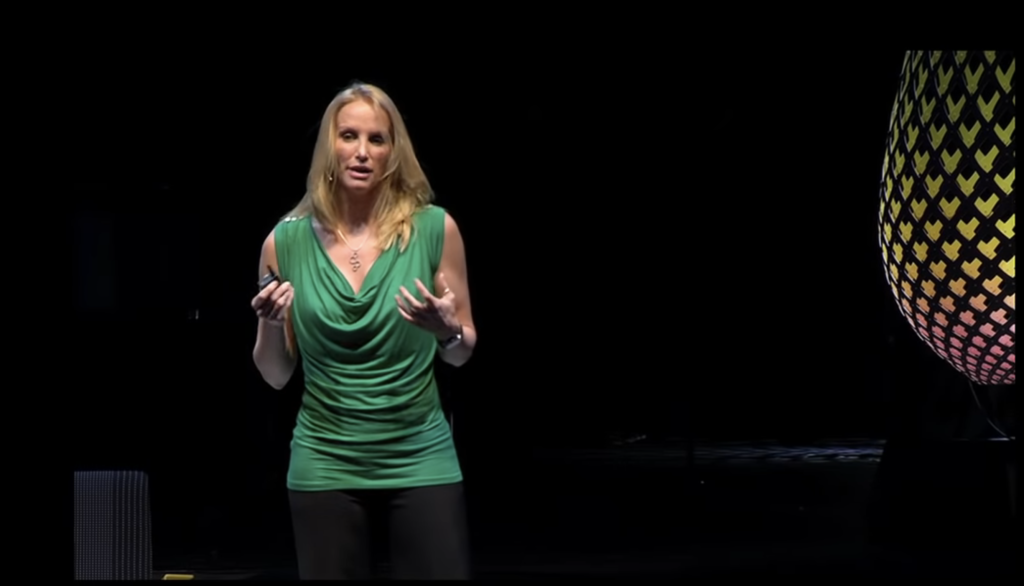
Tanya Streeter เป็นนักดำน้ำผู้สร้างสถิติใหม่ของการดำน้ำประเภท Freediving หรือเป็นการดำน้ำ ประเภทไม่ใช่อุปกรณ์ช่วยหายใจใดๆ ทั้งสิ้น ใช้ได้แค่เพียงการกลั้นหายใจครั้งเดียวเท่านั้น Tanya ไม่ได้แค่อยากจะทำลายสถิติการดำน้ำ Freediving เพื่อเป็นที่หนึ่งในกีฬาด้านนี้สำหรับผู้หญิง แต่เธอต้องการทำลายสถิตการดำน้ำประเภทนี้ในของผู้ชายด้วย เธอกำลังแสดงให้เห็นว่า สำหรับเธอแล้ว นี่คือเรื่องของการ “ไร้ขีดจำกัด”
ปีศาจพูดกับฉันว่า “วันนี้ไม่ใช่วันของเธอ ยอมแพ้แล้วกลับไปซะ”
Tanya Streeter
ในปี 2002 หลังจากที่ Tanya ฝึกซ้อมอย่างหนัก เพื่อเตรียมตัวอย่างดีที่สุด และเรียกทีมงานที่ไว้ใจได้ที่สุดมาเตรียมตัวอยู่ข้างๆ แล้ว เธอคิดว่าทุกอย่างสมบูรณ์แบบสำหรับการทำลายสถิติในวันนี้
แต่เธอกลับพลาด ลึกลงไปในทะเล เธอโดนเล่นงานโดยสิ่งที่เหล่านักดำน้ำกลัวมากที่สุด นั่นก็คือ Narcosis หรือ อาการไม่รู้สึกตัว มึนหัว ซึ่งในบางรายอาจจะถึงขั้นหมดสติ เธอรู้ว่าสิ่งนี้มันเกิดขึ้นกับเธอ เพราะเธอพบว่าเกิดข้อผิดพลาดเล็กน้อยในการเก็บออกซิเจนเข้าปอดก่อนที่จะดำน้ำ และนี่คือผลลัพธ์ที่เกิดขึ้น
นางฟ้าพูดกับฉันว่า “ไปต่อสิ แล้วมาดูกันว่าเธอไปได้ไกลแค่ไหน”
Tanya Streeter
Tanya รู้ว่าสิ่งที่ต้องทำเพื่อให้อยู่รอดก็คือ จับถุงยก เปิดวาล์วแล้วดึงหมุดออก ถุงยกจะพาเธอลอยขึ้นไปยังผิวน้ำทันที เธอทำมันจนถึงขั้นตอนที่สอง แต่แล้วสีหน้าของทีมงานทุกคนที่ดูแลเธอมาตลอดการเตรียมตัว บกวกับสิ่งที่เธอคาดหวัง และแน่นอนทุกคนก็คาดหวังในตัวเธอ ภาพเหล่านั้นเกิดขึ้นเหมือนมีโปรเจคเตอร์มาฉายให้ดูกลางทะเล จากนั้นเธอค่อยๆขยับตัวไปทีละนิดช้าๆ เพื่อให้ได้ความลึกตามที่เธอต้องการ รวบรวมสติแล้วดึงหมุดที่ถุงยกออก
“ถ้ามีอะไรพยายามจะหยุดฉัน ฉันคิดว่ามันคือจิตใจของฉันเอง”
และ นี่เป็นครั้งแรกที่เธอออกมาเล่าเรื่องราวตอนดำน้ำครั้งนั้น เธอลอยขึ้นมายังผิวน้ำ ทำลายสถิติได้ที่ความลึก 525 ฟีต เหมือนกับเอาธนาคารฟรอสต์แบงค์ในเท็กซัสมาต่อความยาวอีกสัก 10 ฟีต หรือเป็นระดับเดียวกับเรือดำน้ำในสมัยสงครามโลกครั้งที 2 ทำได้ ปีศาจและนางฟ้าใต้น้ำ ล้วนเป็นจิตใจของเธอเองทั้งนั้น และขอบคุณที่นางฟ้าของเธอชนะ
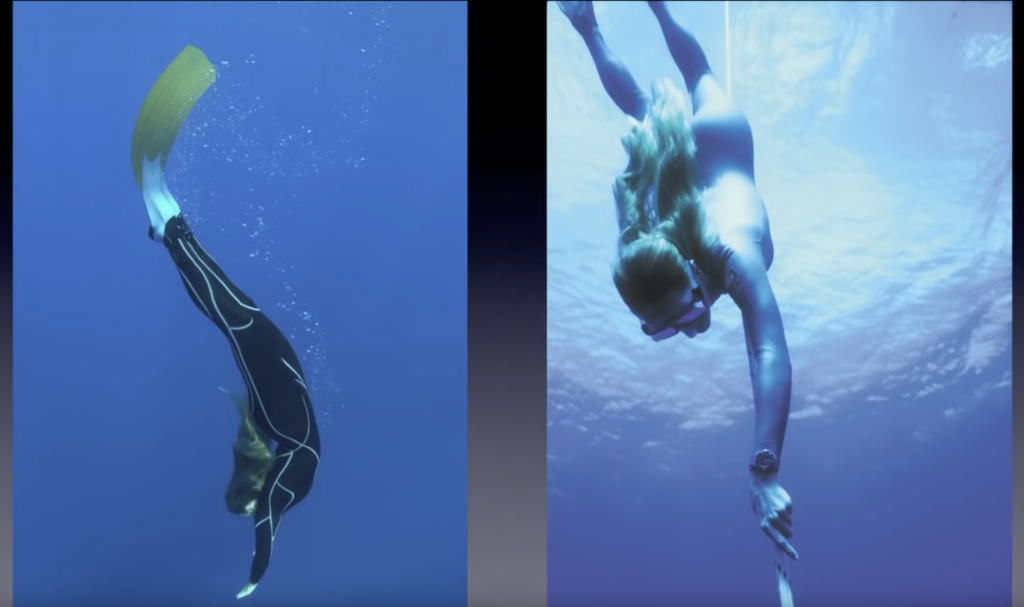
“ฝึกหนัก เตรียมตัวดี แต่ทำไมถึงล้มเหลว”
หลังจากทำลายสถิติโลกได้ Tanya ได้ตั้งขีดจำกัดอันใหม่ขึ้นมา ในตอนนั้นเธอกำลังท้องและกำลังจะกลายเป็นแม่คนในเร็วๆนี้ เธอดูแลเด็กในท้องอย่างดี มีคนรอบข้างคอยดูแลและให้คำแนะนำ เธอมั่นใจว่าทุกอย่างจะต้องออกมาดี
แต่ไม่ใช่ เธอต้องพบกับภาวะซึมเศร้าหลังคลอด มันทำให้เธอเปลี่ยนแปลงไปเป็นคนละคน ทำให้เธอกลายเป็นคนที่ คิดว่าตัวเธอเองคือคนที่เยี่ยมที่สุด เก่งมากที่สุด เพราะเธอเคยทำลายสถิติโลกมาได้แล้ว
“มันไม่ได้เกี่ยวกับการเป็นคนที่เยี่ยมที่สุดในโลก แต่มันคือการพยายามจะเยี่ยมที่สุดในโลกของเธอ” คนที่ดูแลเธอพยายามพูดเพื่อเตือนสติเธอในตอนนั้น และประโยคนี้เองที่ทำให้เธอคิดได้ และหลุดออกจากภาวะซึมเศร้าตรงนั้นออกมาได้
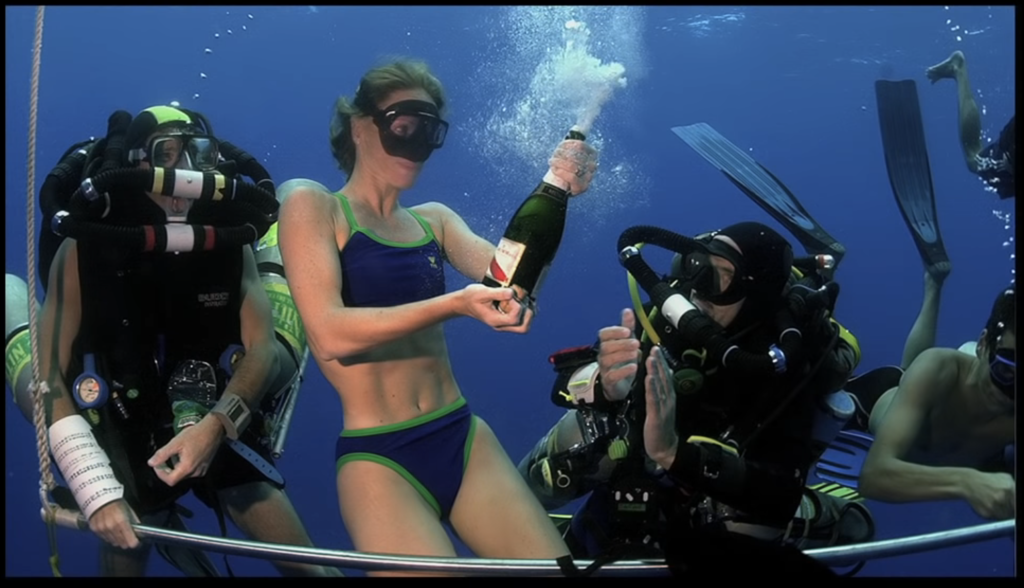
“ขอฉันได้มีโอกาสตอบแทนทะเลกลับไปบ้าง”
จากนั้นไม่นาน Tanya ได้รับการติดต่อจาก Plastic Oceans Foundation ให้โอกาสในการมีส่วนร่วมของภาพยนต์กึ่งสารคดี ที่นำเสนอความจริงที่น่าตกใจเกี่ยวกับผลกระทบที่เกิดจากพลาสติกในทะเล โดยเนื้อเรื่องของหนังเรื่องนี้ ไม่ได้ต้องการการแสดงอะไรที่เกินจริง เพียงแต่ต้องการนำเสนอความจริง วิถีชีวิต ผลกระทบ และทางแก้ไขปัญหาเกี่ยวกับขยะพลาสติก เป้าหมายคือต้องการให้คนตระหนักรู้ว่าปัญหานี้มันไม่ได้ไกลตัวอย่างที่คิด
“ทะเลเป็นสนามเด็กเล่นของฉัน”
Tanya เล่าว่า เธอเติบโตมากับทะเล ในเวลาว่าง หลังเลิกเรียน หรือในวันหยุด เธอมีทะเลเป็นเพื่อน แน่นอนว่าเป็นเป็นที่หลบภัยที่อบอุ่นของเธอ มันปกป้องเธอในเวลาที่เธอต้องการ และมันสถานที่ที่ทำให้เธอได้พิสูจน์ตัวเอง และตอนนี้มันถึงเวลาที่เธอจะลุกมาตอบแทนมันได้บ้างแล้ว
“พลาสติกเป็นสิ่งถาวร และไม่สามารถย่อยสลายหายไปได้ มันจึงไม่มีทางไปไหนได้พ้น”
10 ปีที่ผ่านมา เราผลิตพลาสติกกันมามากกว่าศตวรรษ และกว่าครึ่งหนึ่งของพลาสติกเหล่านั้น เป็นพลาสติกแบบใช้แล้วทิ้ง ทำไมสิ่งที่ใช้แล้วทิ้ง ถึงเป็นอะไรที่ย่อยสลายไม่ได้
อย่างพลาสติกในตอนที่เราโยนมันลงถังขยะ เราคงคิดว่ามันคงจะถูกทำลายในสักที่ที่พ้นๆตัวเราออกไป แต่เปล่าเลย ตอนนี้สิ่งที่เราทิ้ง มันลอยอยู่เต็มมหาสมุทรของเราเต็มไปหมด ซึ่งโลกของเราส่วนใหญ่ก็ล้วนแล้วแต่ผืนน้ำเสียด้วย พลาสติกที่ทิ้งขว้างไปในวันนี้ จะไม่มีทางจะไปไหนพ้น และมันจะกลับวนกลับมาหาพวกเราในรูปแบบใดรูปแบบหนึ่งในสักวันอย่างแน่นอน
“ไม่ใช่โลกของฉัน โลกของคุณ ตอนนี้เป็นเรื่องโลกของเรา”
Tanya กล่าวว่า เธอไม่ได้จะแนะนำให้ทุกคนอยู่โดยไม่หวังพึ่งพลาสติกเลย เพราะอย่างไรก็ตามคนที่คิดค้นมันขึ้นมา และนำมันเข้ามาใช้ก็มีความหวังดีในการจะยกระดับคุณภาพชีวิตทุกคนให้ดีขึ้น และหวังว่ามันจะช่วยให้การดำเนินชีวิตเราแต่ละวันให้สะดวกมากยิ่งขึ้น

แต่เธออยากจะแนะนำให้ทุกคนเรียนรู้ที่จะอยู่โดยไม่ต้องพึ่งมัน เพื่ออนาคตของเราเอง ลูกหลานของเรา และครอบครัวของเราต่อไป
ซึ่งตอนนี้มันไม่ใช่เวลาจะมาคิดว่าแล้วว่าขีดจำกัดของเรามันจะต้องดีที่สุดในโลก ไม่ว่าจะเป็นโลกของฉันหรือโลกของใคร เพราะตอนนี้เราต้องทำให้ดีที่สุดเพื่อโลกของเรา
บทสรุป
การตั้งขีดจำกัดเป็นเรื่องที่ดีสำหรับคนที่ต้องการความสำเร็จ ในบางครั้งมันทำให้เรารับรู้ขีดจำกัดของตัวเอง แต่ในบางครั้งมันก็ทำให้เรารู้ว่าเราสามารถเป็นได้มากกว่าขีดจำกัดที่เราเคยได้ตั้งเอาไว้
ยกตัวอย่างเช่น วันนี้เราอาจจะตั้งขีดจำกัดไว้ว่า เราสามารถจำคำศัพท์ภาษาอังกฤษ 100 คำภายใน 1 สัปดาห์ ถ้าเราทำลายขีดกัดของตัวเองได้ สัปดาห์ต่อไปเราอาจจะสามารถจำคำศัพท์ภาษาอังกฤษได้ถึง 200 คำ หรือ ในเดือนนี้เราอาจจะจำคำศัพท์ได้มากกว่า 500 คำก็ได้
และมันจะยิ่งดีมากๆเลย ถ้าเราจะลองตั้งขีดจำกัดเป็นการเลิกใช้พลาสติก ไม่ว่าจะเป็นช้อน หรือ ส้อม หรือ อื่นๆในมื้ออาหารกลางวัน หรือ เลิกซื้อของที่มีบรรจุภัณฑ์เป็นพลาสติกมาไว้ในบ้าน หรือ เปลี่ยนมาเป็นพกแก้วไปใส่กาแฟเองแทนการรับแก้วพลาสติกจากคาเฟ่แถวๆบ้าน หากทำแบบนี้ได้จริงๆ ขีดจำกัดของเรามันจะไม่ใช่แค่ดีที่สุดสำหรับเรา แต่มันจะดีที่สุดสำหรับโลกที่เราอาศัยอยู่ด้วย
“คนที่ไม่เสี่ยงกับอะไรเลย ไม่ทำอะไรเลย ไม่มีอะไรเลย ไม่เป็นอะไรเลย จะไม่สามารถกลายเป็นอะไรได้เลย เขาอาจจะหลีกเลี่ยงความทุกข์และความเศร้าโศกได้ แต่เขาจะไม่สามารถเรียนรู้ รู้สึก เปลี่ยน เติบโต ใช้ชีวิต และรักได้หรอก”
Leo Buscaglia – Writer
Redefine Your Limits – Tanya Streeter
ขอขอบคุณ: https://www.deeperblue.com/tanya-streeter-featured-on-npr-podcast-about-breathing/ และ https://www.ted.com/tedx/events/2549
บทความแนะนำ:
James Dyson อัจฉริยะนักประดิษฐ์ ผู้ที่ไม่เกรงกลัวกับความล้มเหลว

